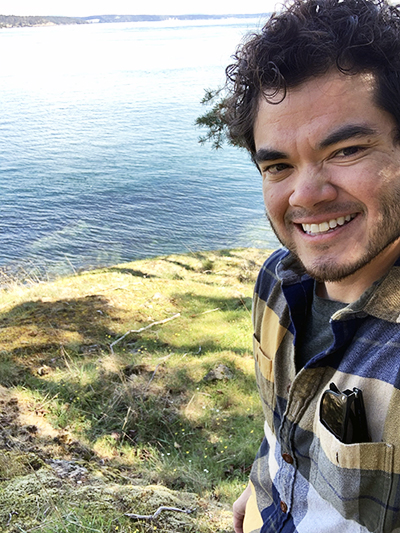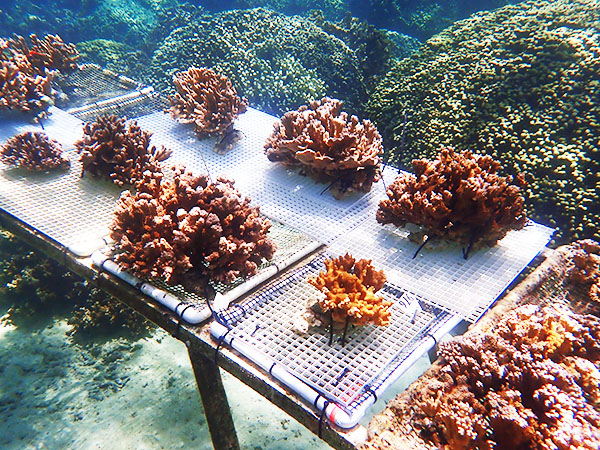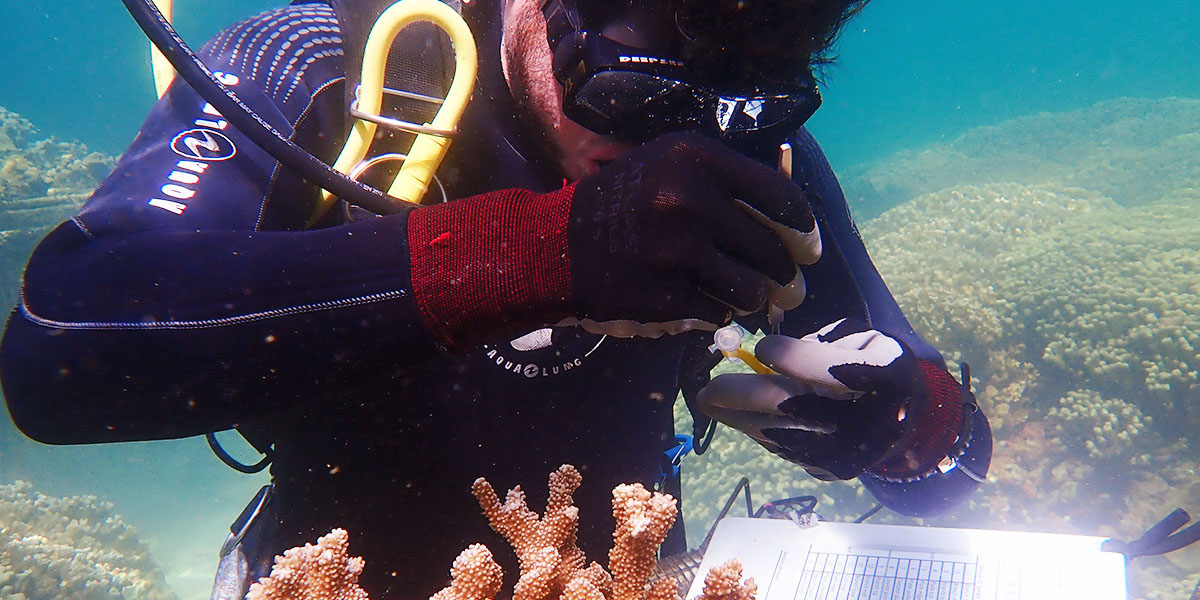A version of this story by Marcie Grabowski for the UH Mānoa School of Ocean and Earth Science and Technology originally appeared on the SOEST website.
“Healthy coral reefs benefit everyone,” says Shayle Matsuda. “Here in Hawai‘i, they have huge social, economic, ecological and cultural significance. Many things can impact our reefs negatively, including ocean warming events caused by climate change.”
Matsuda, a doctoral candidate in the University of Hawaiʻi at Mānoa Marine Biology Graduate Program, is studying a potential coral-saving strategy. He is a recipient of the 2021 David H. Smith Conservation Research Fellowship by the Society for Conservation Biology and the Cedar Tree Foundation.
Restoring the reefs
“My research focuses on understanding why some corals are more resilient than others, which will help us understand what may happen to the reefs as oceans continue to warm, and help us identify more resilient individuals to use in restoration and conservation initiatives,” he says.
He is on a team of researchers engaging in an international coral reef restoration project. During the fellowship, he will assess how transplanting coral affects its health, specifically the symbiotic relationship between coral and their microbiomes.
Matsuda says,
“By studying patterns of microbial dysbiosis—the breakdown of the microbiome-host relationship—in key coral species in Hawaiʻi and Florida, we will better understand the risks of implementing large-scale coral translocation as a conservation strategy.”
Prepared for the future
Working with Craig Nelson, an associate researcher at the Center for Microbial Oceanography: Research and Education, and the Coral Resilience Lab at the Hawaiʻi Institute of Marine Biology, Matsuda has focused his graduate research on the effects of ocean warming on coral-microbial symbioses and coral physiology.
“Shayle’s doctoral work here at UH Mānoa has broken new ground in understanding how rising ocean temperatures will affect the symbioses between coral, algae and bacteria as coral reef bleaching increases worldwide,” says Nelson. “He has pioneered new molecular techniques to study these symbioses throughout the coral lifecycle. Shayle will bring cutting-edge skills in coral microbiome science and the molecular basis of symbiosis to his Smith fellowship project.”
“It’s been a challenge not to take on too many side projects!” says Matsuda. “One thing I'm most grateful for in being based at UH is our proximity to the reef.
"That, along with the amazing collaborators I've worked with during my PhD here, has given me the opportunity to explore more questions than just what is in my dissertation.”
Votes of confidence
With fellowships from Hawaiʻi Sea Grant, Point Foundation, and the Denise B. Evans Fellowship Fund, plus direct support from Pam Omidyar and the Paul G. Allen Family Foundation, he has studied coral bleaching and recovery in Hawaiʻi and on the Great Barrier Reef in Australia, examining how thermal stress impacts microbial and algal symbioses.
The Smith Fellowship, one of the nation’s premier postdoctoral programs in conservation science, identifies and supports early-career scientists who will shape the growth of applied conservation science and seeks solutons for the most pressing conservation challenges.
The Denise B. Evans Fellowship offsets expenses—such as tuition, travel, materials and supplies—for students conducting oceanography research through the Hawai‘i Institute of Geophysics at UH Mānoa’s School of Ocean & Earth Science & Technology.
Matsuda says, “It has a huge impact on my ability to finish my PhD, allowing me to focus on writing rather than teaching this year. While the generosity of other scholarships and funding has supported my research, the gift of time that comes with the Denise Evans fellowship allows me to make greater strides in my dissertation research, allowing me time to focus more fully on my research.”
Photo credits:
(above) Emily Sesno
(below) Courtesy of Shayle Matsuda


Questions? / More Information
If you would like to learn how you can support UH students and programs like this, please contact us at 808 376-7800 or send us a message.
